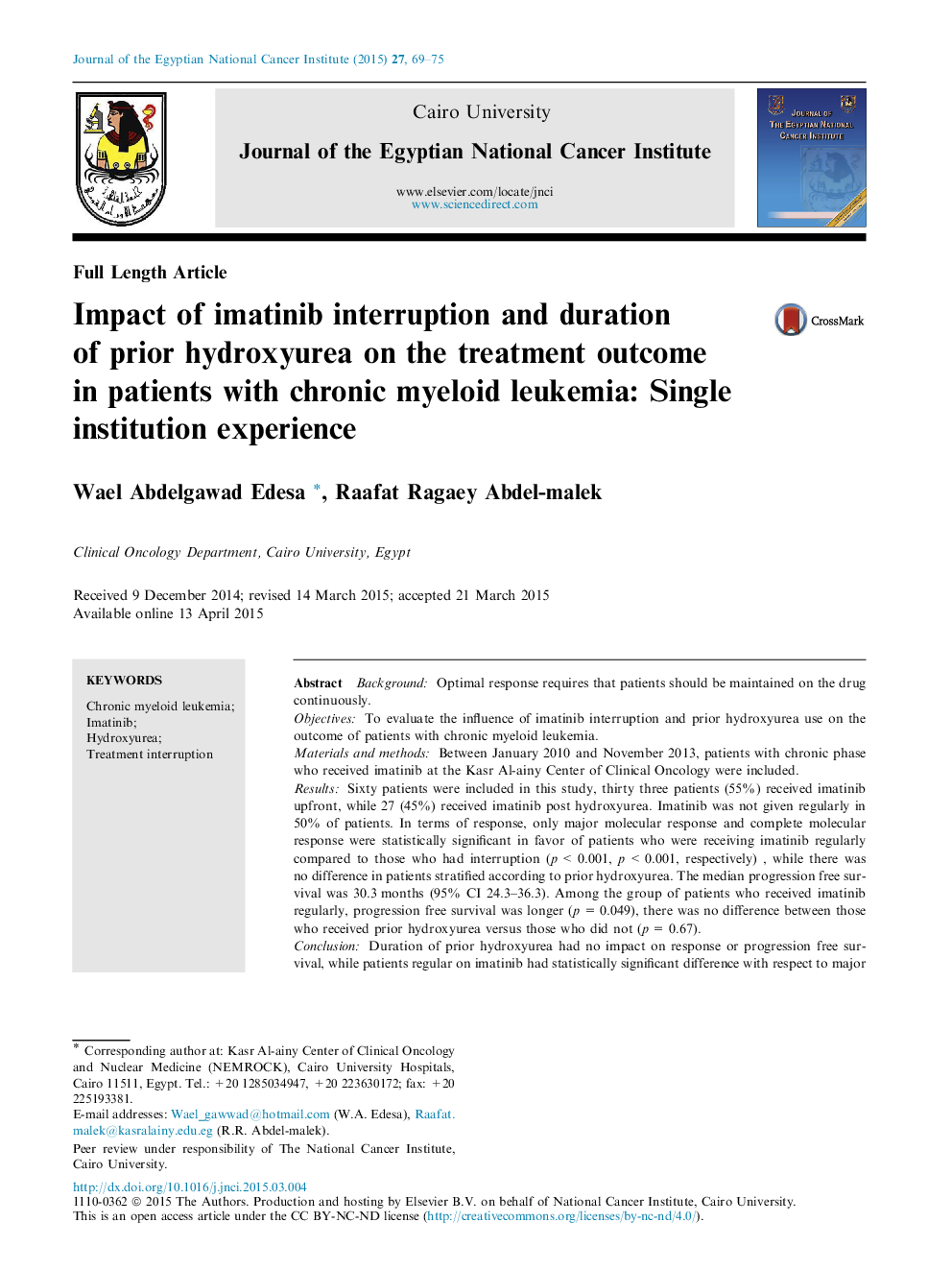| Article ID | Journal | Published Year | Pages | File Type |
|---|---|---|---|---|
| 3988995 | Journal of the Egyptian National Cancer Institute | 2015 | 7 Pages |
BackgroundOptimal response requires that patients should be maintained on the drug continuously.ObjectivesTo evaluate the influence of imatinib interruption and prior hydroxyurea use on the outcome of patients with chronic myeloid leukemia.Materials and methodsBetween January 2010 and November 2013, patients with chronic phase who received imatinib at the Kasr Al-ainy Center of Clinical Oncology were included.ResultsSixty patients were included in this study, thirty three patients (55%) received imatinib upfront, while 27 (45%) received imatinib post hydroxyurea. Imatinib was not given regularly in 50% of patients. In terms of response, only major molecular response and complete molecular response were statistically significant in favor of patients who were receiving imatinib regularly compared to those who had interruption (p < 0.001, p < 0.001, respectively) , while there was no difference in patients stratified according to prior hydroxyurea. The median progression free survival was 30.3 months (95% CI 24.3–36.3). Among the group of patients who received imatinib regularly, progression free survival was longer (p = 0.049), there was no difference between those who received prior hydroxyurea versus those who did not (p = 0.67).ConclusionDuration of prior hydroxyurea had no impact on response or progression free survival, while patients regular on imatinib had statistically significant difference with respect to major molecular response, complete molecular response and progression free survival compared to those who had periods of drug interruption, thus we need more governmental support to supply the drug without interruption to improve the outcome of therapy.
